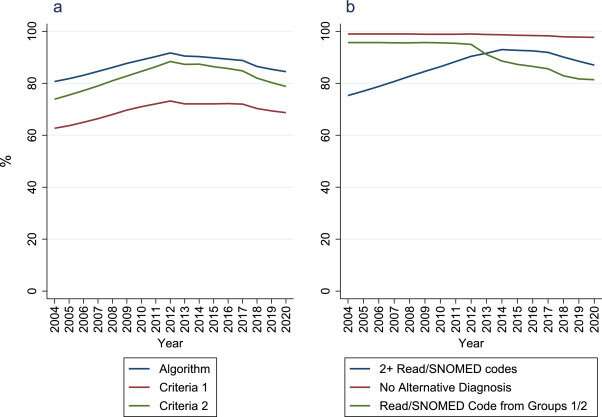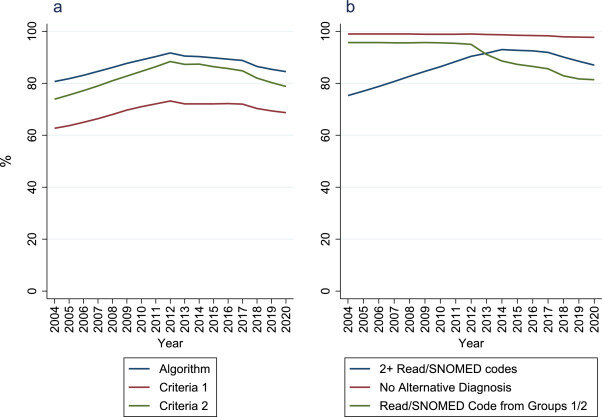
The proportion of adults in England diagnosed with inflammatory arthritis has increased by at least 40% between 2004 to 2020, new Keele University research has found.
Inflammatory arthritis groups together conditions causing joint pain and swelling. Its three main types—rheumatoid arthritis, psoriatic arthritis, and axial spondyloarthritis—cause long-term pain and disability and have high costs to the UK economy. The earlier people with inflammatory arthritis receive specialist treatment, the better their outcomes.
Led by Dr. Ian Scott from Keele University’s School of Medicine and Midlands Partnership NHS Foundation Trust, this study published in The Lancet Regional Health—Europe looked at the proportion of adults in England with a diagnosis of one of these three conditions in each year from 2004 to 2020.
Planning NHS services to deliver early and appropriate specialist treatment to patients with inflammatory arthritis requires understanding how many people in England have these conditions. To address this, the research team looked at data from a large GP database—the Clinical Practice Research Datalink Aurum—which currently includes information from over 1,400 GP practices across 20% of England. They looked at data from 2004 to 2020, to understand how the prevalence of inflammatory arthritis diagnoses have changed in that time.
They found that the proportion of adults in England with a diagnosis of one of these forms of inflammatory arthritis increased over the study period by at least 40%. This meant that in 2020 over 1% of adults and over 2.5% of those aged over 65 years in England had a diagnosis in their GP records of one of these conditions.
Lead author, Dr. Ian Scott says that their “findings have significant implications for the NHS in England. Many studies have shown that the earlier people with inflammatory arthritis receive specialist treatment the better they do, and it is very important that people with new onset inflammatory arthritis or suffering a flare of their arthritis are seen quickly. Organizing NHS services to enable this is vital.”
Source: Read Full Article
